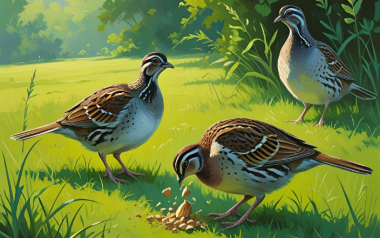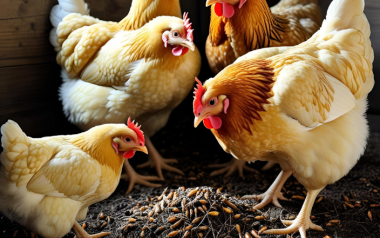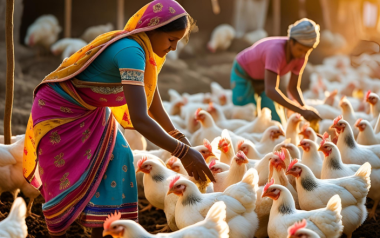Sources: Available upon request
11 Aug 2025
Quails fed Black Soldier Fly larvae show promising result
Recent studies have highlighted the nutritional and environmental benefits of incorporating black soldier fly (BSF) larvae into quail diets.
Recent studies have highlighted the nutritional and environmental benefits of incorporating black soldier fly (BSF) larvae into quail diets. Researchers from Brazil, Russia, and Italy have conducted experiments demonstrating that BSF larvae meal can significantly enhance quail growth, egg quality, and feed efficiency.
In Brazil, a study evaluated the effects of BSF meal on growing Japanese quails. Two experiments were conducted: one to determine the nutritional value of BSF meal and another to assess its impact on growth performance. Quails fed diets containing up to 100 g/kg of BSF meal showed improved feed conversion ratios and body weight gain. The larvae meal provided high metabolizable energy (13.8 MJ/kg) and a rich amino acid profile, including lysine, methionine, and threonine.
- Meanwhile, Russian scientists explored the impact of BSF larvae on laying quails.
- Their experiment involved three groups: a control group, a group fed with 3% BSF larvae, and another with 7%.
- After two months, eggs from the supplemented groups showed increased levels of essential amino acids—lysine by 17%, methionine by 16%, and tryptophan by 21%.
- Fatty acid content also improved, with linoleic acid rising by 25% and linolenic acid by an impressive 250%.
- The researchers emphasized the potential of BSF larvae to reduce reliance on imported feed additives and support sustainable poultry farming.
In Italy, another study tested defatted BSF larvae meal as a substitute for soybean meal in laying quail diets.
- Inclusion levels of 10% and 15% were evaluated.
- The results showed that quails maintained optimal performance, and eggs had improved shell quality and yolk color.
- Although saturated fatty acid content increased, the sensory profile of the eggs remained largely unaffected.
- Notably, oxidative stability was higher in eggs from the 10% BSF group after 28 days of storage.
Collectively, these findings suggest that BSF larvae meal is a viable alternative protein source for quail feed. It not only enhances growth and egg quality but also contributes to environmental sustainability by utilizing organic waste and reducing dependency on conventional feed ingredients. As the poultry industry seeks cost-effective and eco-friendly solutions, BSF larvae offers a promising path forward.







































